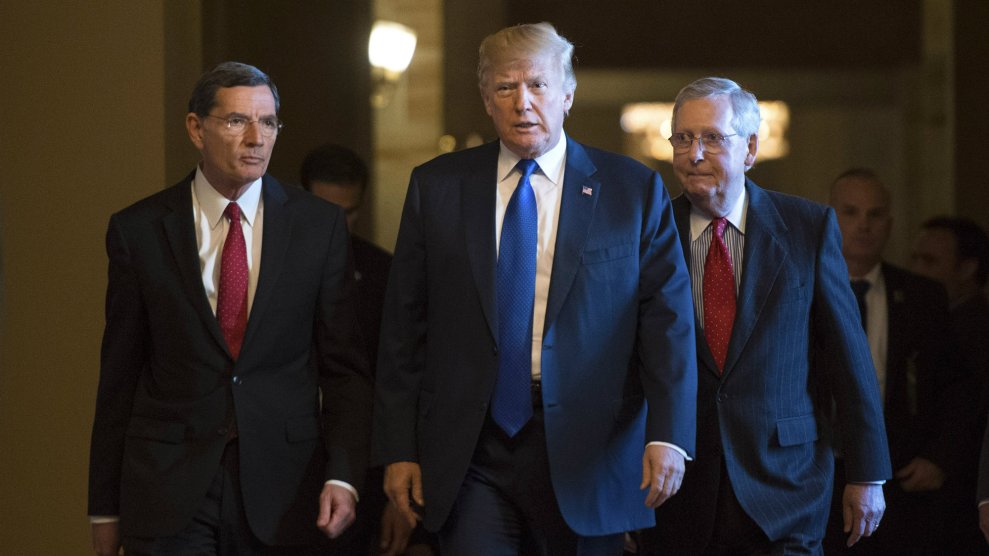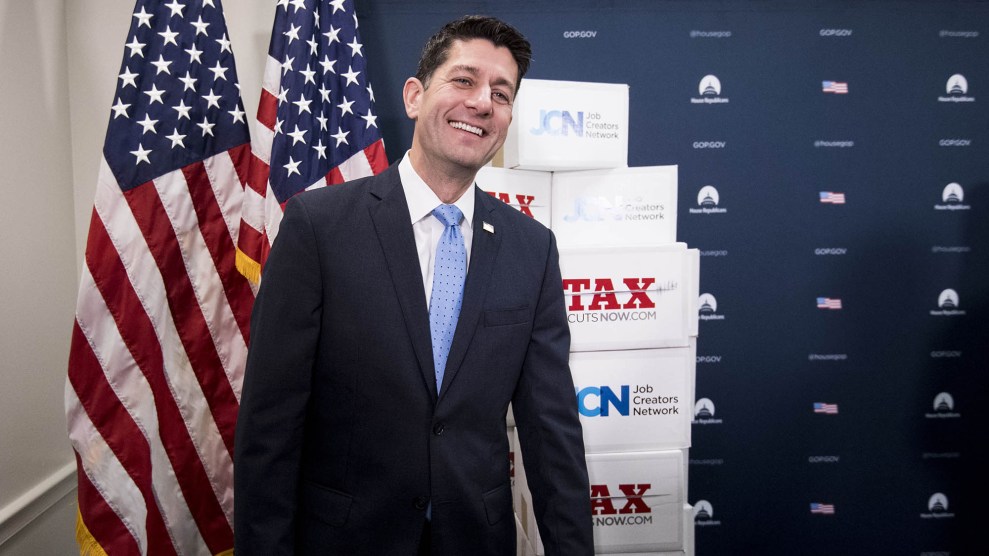
United States President Donald J. Trump walks with Senate Majority Leader Mitch McConnell (R), R-KY, and Chairman of the Senate Republican Policy Committee John Barrasso, R-WY.Kevin Dietsch/picture-alliance/dpa/AP
The Senate on Tuesday evening narrowly passed a massive tax cut championed by President Donald Trump and congressional Republicans, moving the controversial bill one step closer to becoming law. Every Republican Senator except John McCain (R-Ariz.), who is recovering from cancer treatment, voted for the legislation. All 48 Democrats and Independents opposed it. A version of the bill had passed the House of Representatives earlier Tuesday, but due to technical changes made in the Senate, the House will have to vote on it again Wednesday. Assuming it passes once again, it will then head to the White House for Trump’s signature.
The final bill will provide generous tax breaks for corporations and the richest Americans while increasing federal deficits by $1.5 trillion over the next decade. Here’s what else is in it:
- Individual tax rate cuts. The bill will lower income tax rates for most Americans, but the highest earners will see the biggest cuts, with the top tax rate falling from 39.6 percent to 37 percent. These tax cuts would expire after 2025, after which lower-income families would face a tax increase, according to the nonpartisan Tax Policy Center.
- Permanent corporate tax rate cut. The corporate tax rate will fall to 21 percent from 35 percent, giving corporations the largest one-time tax cut in history, according to the Washington Post.
- Limits on local and state tax deductions. Federal tax deductions for state and local taxes would be limited to $10,000 per household, which would hurt many residents of high-tax states, such as California and New York.
- Eliminates Obamacare’s individual mandate. The bill erases the tax penalty paid by Americans who decline to purchase health insurance. The Congressional Budget Office estimates this could lead to 13 million more Americans going without coverage by 2027 and cause individual premiums to rise 10 percent.
Trump could sign the bill into the law before Christmas, marking one of his first major legislative accomplishments since entering office.
















